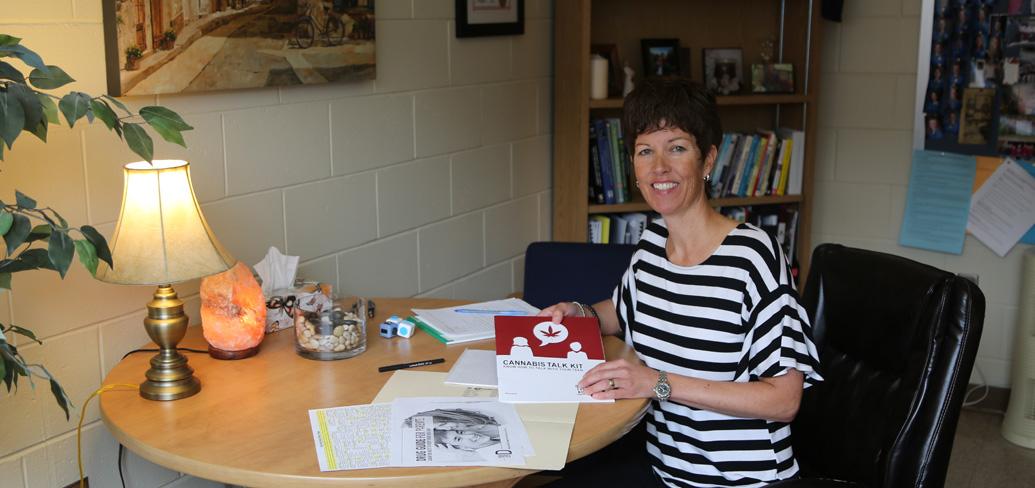How to talk to your kids about cannabis

With graduation approaching and new federal cannabis legislation coming into effect sometime this year, we sat down with veteran Bluefield High School counselor Jennifer Gillan to get some tips on how parents can talk to their kids about drugs and alcohol.
Why is it important that parents talk to their kids about drugs?
Education and awareness are key to prevention. Education is SO important. Youth need to be aware of their body and brain development and that drug use effects that development negatively.
The pre-frontal cortex -- the part of the brain that controls reasoning and impulses -- does not fully mature until age 25. Evidence shows that the use of cannabis can interfere with that development.
What is a good age to begin discussions?
I would suggest mid elementary school age (Grade 4) but each parent knows their child best. If questions arise beforehand, address them right away. Discussions should start when you, as the parent, feel your child is ready. I would suggest elementary school age to pre-teen, but the parent knows their child best.
What would you advise parents to say to their kids?
Parents should be factual about drug use, so that may mean educating themselves before they have that conversation.
There are some great resources available to parents on “how to talk to your teen about drugs.” Open dialogue with your child is key. Parents are the first line of defence.
- Try to be positive and relaxed and avoid lecturing.
- Reassure your child they can ask and tell you anything.
- Make sure your child knows you are there for them and will be their support.
- Encourage healthy behaviours and reward and praise good decision-making.
How can parents help their kids make good choices?
Talk to your child about the future; their hopes, dreams, aspirations in life (making a difference, traveling the world, etc.) and try to connect those future plans with the decisions they make in their teens. Drug use may restrict what they can do in the future.
Keep your child busy with activities that he/she enjoys (especially from 3 to 6 p.m.) before parents get home from work. Spend time together as a family. Know who their friends are and have them at your home. Know where your teen is going in the evenings and where they are staying at night. Be part of the plan, every weekend.
What can parents do around the household?
Know which prescription medication and amount of alcohol you have in your home. Properly dispose of any old medications to prevent anyone from using them improperly.
Talk to kids about the risks of taking any medication that is not prescribed to them. What looks like familiar medicine can be dangerous - and even deadly - when used improperly.
Are there any resources you suggest parents may want to use?
- Drug Free Kids Canada has a great Cannabis Talk Kit, free to download or order online for a free hardcopy
- Your child's school: the Youth Service Worker, School Counsellor, Addiction Service Worker, Behavioural Support Team
- Health PEI's family addiction service programs
- The PEI Helping Tree contact information chart produced by the Canadian Mental Health Association
- Your family's health service provider
Parents may worry that opening a conversation about drugs implies consent. What can ease their minds?
I don’t think having a conversation with your child about any topic, drug use, sexual health, implies consent. Children need to be informed in order to make good choices.
Is there anything else you would like parents to know?
Ongoing dialogue between parent and youth is really important. This is not a one-time only conversation.
- Watch for the usual signs and symptoms of drug and alcohol use and be mindful of these, as early intervention can help your child too.
- Look for changes in their friends, school work, work ethic, increased secrecy, lack of interest in extracurricular activities.
- If changes occur, talk to your child about these changes. If you still have concern, call your family doctor and/ or your child's school.
The PEI government has created policies to reduce the illegal market for cannabis, to help Islanders make an informed choice, and to protect the public health and safety of our citizens.